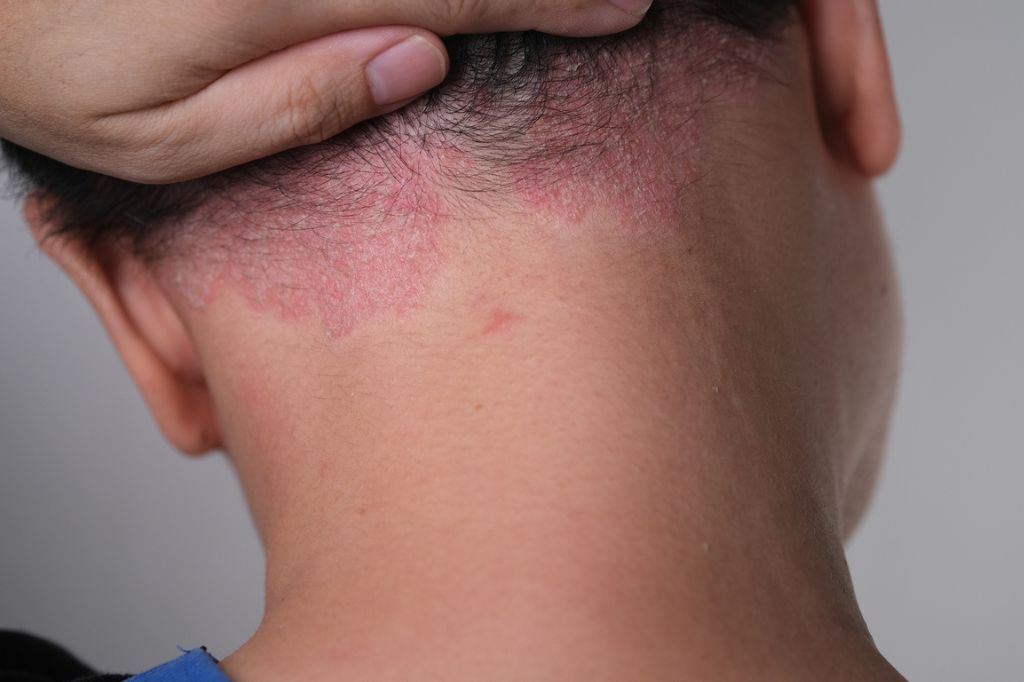If you’re dealing with an itchy, flaky scalp, you might wonder whether it’s just dandruff or something more serious like scalp psoriasis. At Cascade Eye & Skin Centers, we understand how frustrating and uncomfortable scalp issues can be. Let’s break down everything you need to know about scalp psoriasis, including its causes, symptoms, and the best ways to manage it. We’re here to help you find relief and get back to feeling like yourself.

Why Does Scalp Psoriasis Happen?
Scalp psoriasis is pretty common, and if you have it, you’re not alone. Psoriasis is an autoimmune condition, which means your immune system mistakenly attacks healthy skin cells, causing them to grow too quickly. Instead of the usual month-long cycle, new skin cells reach the surface in just a few days, piling up and forming those characteristic scales and patches.
Several factors can contribute to scalp psoriasis:
- Genetics: If psoriasis runs in your family, you’re more likely to develop it.
- Infections: Bacterial or viral infections can trigger flare-ups.
- Stress: High stress levels can make symptoms worse.
- Skin Injuries: Cuts, scrapes, and even sunburns can trigger new patches.
- Medications: Some drugs, like lithium or beta-blockers, can worsen psoriasis.
- Weather: Cold, dry weather can dry out your skin and worsen symptoms.
Is It Psoriasis or Just Dandruff?
It’s easy to confuse scalp psoriasis with dandruff because both cause flaking and itching. Here’s how to tell the difference:
Dandruff
Dandruff causes white or yellowish flakes that are oily and fall off easily. It usually comes with an itchy scalp but no red patches or thick plaques.
Scalp Psoriasis
Scalp psoriasis causes red, inflamed patches covered with thick, silvery scales. The itching can be more intense, and the affected areas are often more extensive.
Recognizing the Symptoms
Knowing what to look for can help you identify scalp psoriasis early on. Common symptoms include:
- Raised red patches covered with silvery-white scales
- Flakes that look like dandruff but are often more severe
- Intense itching that can lead to scratching and further irritation
- Extremely dry scalp that can crack and bleed
- Scratching can cause bleeding and increase the risk of infection
- Temporary hair loss can occur due to scratching or certain treatments
Finding Relief: Treatment Options
Managing scalp psoriasis often requires a combination of treatments. Here are some options that might help:
1. Topical Treatments
- Corticosteroids may help reduce inflammation and itching. They are available in various forms, like creams, ointments, and shampoos.
- Vitamin D analogues may help slow down skin cell production and flatten plaques.
- Coal tar can reduce scaling, itching, and inflammation. It is available in shampoos, creams, and oils.
- Salicylic acid helps remove scales and soften plaques.
2. Light Therapy
- UVB light therapy slows down the growth of affected skin cells.
3. Systemic Treatments
- Oral medications such as methotrexate, cyclosporine, and retinoids may be prescribed for severe cases.
- Biologic drugs target specific parts of the immune system, such as adalimumab, etanercept, and infliximab.
4. Home Remedies
- Moisturizing can help keep the scalp hydrated.
- Oatmeal baths soothe inflamed skin and reduce itching
- Aloe vera has natural anti-inflammatory properties that can help reduce redness and scaling.
Personalized Care at Cascade Eye & Skin Centers
At Cascade Eye & Skin Centers, we know that dealing with scalp psoriasis can be a struggle. Our dermatologists are here to provide personalized care tailored to your specific needs. We’ll work with you to develop a management plan that addresses your symptoms and helps you find relief.
Don’t let scalp psoriasis control your life. Click here to schedule a consultation with our expert dermatologists today. Together, we can create a treatment plan that works for you and helps you feel more comfortable in your skin.




